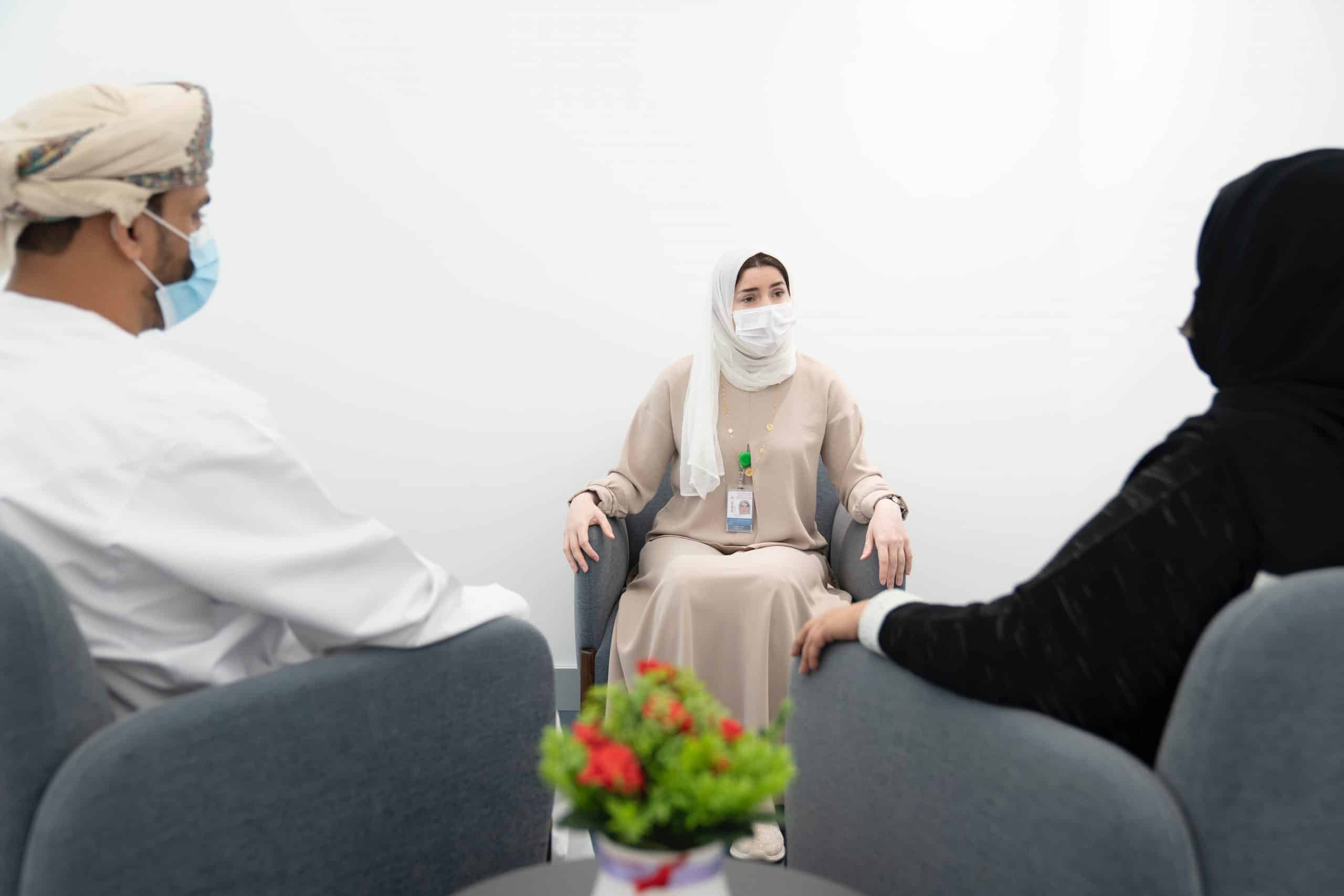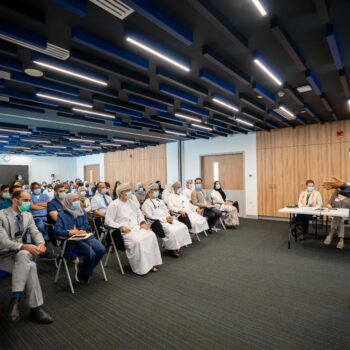Psychological Support for Cancer Patient Family... is it Necessary?
Does the family need psychological support like a cancer patient does?
Here we are interviewing Dr. Zena Marwan Al Sharbati a Senior Specialist -A- Clinical Psychology at Sultan Qaboos Comprehensive Cancer Care and Research Centre on the various areas of psychological support for the family, besides to exploring the extent to which the Omani family accepts this type of treatment, and how it deals with the cancer illness perceptions, which are largely influenced by the media and television…!
The family’s need for psychological support
“Families need psychological support perhaps to the same extent as the patient. It is interesting to learn that when the patient is diagnosed with cancer, he/she goes through the known stages of grief or loss: denial, anxiety, anger, bargaining, depression, acceptance. Some people may think that the patient goes through theses stages in a linear manner, meaning one stage followed by the next, while in reality this is not typically the case. For example, it is possible for a patient to be largely accepting of the disease today, but could later be in a psychological state to question the cancer itself and whether what is happening is real or unreal.. and this state of mind could fluctuate within days.
In fact, going through the stages of grief could take months or years. We may see patients in the psychological state of denial after one or two years from their diagnosis with cancer. The family goes through similar stages as the patient; therefore, it needs psychological support just as the patient. The type of family support needed largely depends on who is the patient in the family.. For instance, the patient might be the first child in the family, or the eldest daughter who has just gotten married and given birth or she might be the only daughter. Also, it might be that the patient is the father, who happens to be the sole breadwinner of the family. Therefore, the family’s reaction varies depending on the patient’s role in the family, and depending on the situation, the amount of psychological support is determined.”
The Family’s needs for various types of support
“There are many areas that the family may need help in.. At the initial stage of the diagnosis journey, family members may need someone to reassure them and tell them that their feelings are expected, normal, and accepted, and that many people experience similar feeling states. On the other hand, and given that we are a “collective” society in which everyone unites to provide help, it is important to accept the support provided by friends, neighbors and family. Furthermore, the patient’s family may need some guidance in sharing the disease news with the patients, especially in the case of elderly patients. It might also be helpful to encourage autonomous decision making, when appropriate. We have seen families who did not inform their patient about the illness to psychologically protect the patient from overwhelming feelings, however it might be important to provide the patient with all necessary information needed, and help the family to support the patient.”
The Omani family and psychological support
“This is a very important question, we see many Omani families accepting professional psychological support with a big heart and a reconciled spirit. On the other hand, we see some families who exhibit many signs of anxiety and are encouraged to visit a therapist, but they refuse to do so. In general, I noticed that there is a great deal of acceptance of professional psychological support as there are some families who would ask for a psychotherapist to be with them from the beginning of the treatment and throughout their recovery journey.”
Support methods and their success
“It has been observed that supportive family psychotherapy are effective in reducing distress and helping families adjust to the new reality. As a psychotherapist, and although my basis is in Cognitive Behavioral Therapy, I generally utilize an eclectic approach in psychotherapy by using what is useful and appropriate for each individual family. At the initial stages of psychotherapy, I work with families to address communication issues. Difficulties in communication are common because family members tend to pretend that they are strong by not displaying (vulnerable feelings). We address this in session and highlight that the patient is better helped by being authentic in expressing their thoughts and feelings.
Here, the therapist tries to understand what is going on in the minds of family members to determine the appropriate solutions for them. Sometimes, we find it helpful to encourage family members to write their feelings, fears and thoughts in a specific notebook which is placed in a known place so that everyone can use it to communicate their feelings and thoughts. This method could be more helpful when family members have difficulty in sharing their vulnerable feelings and thoughts
On the other hand, we encourage everyone in the family to take care of themselves, given that family members typically stop taking care of themselves and they no longer engage in their hobbies and other meaningful life activities. Rather, we see them dedicating all of their time and efforts to the patient, which is a common behavior. Therefore, we encourage family members to achieve some balance as much as they can so they can better support the patient.
Media, googling, and critical thinking
“When I was younger, I was also emotionally affected by what I saw on T.V., and at that time I thought this is the reality when it comes to cancer. Unfortunately, we, as health care providers, continue to face this issue with families, as they think that what appears in movies, is what actually happens in real life. Families tend to equate cancer with death as shown in various movies. Unfortunately, these unhelpful illness representations are not only associated with cancer as a disease, but also are seen with other illness such as mental illness. These misconceptions in cancer exist, despite the vast development in medical treatments and the increasing number of cancer survivors who continue to live their life to the fullest. As a consequence, I encourage people to activate “critical thinking” when it comes to various media sources and to take information from its trusted medical sources.
Even in terms of treatments and symptoms, the movies, in line with the dramatic plot, could display incorrect ideas, often showing the patient with a shaved head or no hair, and the tubes are connected to the patient’s body Yes, these may occur as a side effect of chemotherapy, but it does not necessarily occur in all types of treatments, and in in all stages of the disease, and certainly not with every type of cancer, and this is what families should be aware of.”
Last word
“It is important for patients and their families to mobilize all their coping resources to adjust to the new cancer diagnosis. It is also critical for families to take things slowly and not jump to conclusions. The doctor studied for many years to gain all this scientific knowledge as well as experience, so it will not make sense to ignore all of this and rely on inaccurate information taken from the various searching databases. We often see families and the patient in a state of heightened fear and anxiety because of inaccurate information that they read from the Internet. Here at the SQCCCRC, we always reassure patients and their families that the center is equipped with the most recent and up to date services and treatments, and we are with them in all stages of their treatment journey”.





